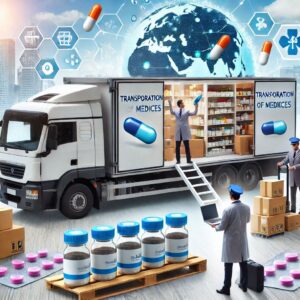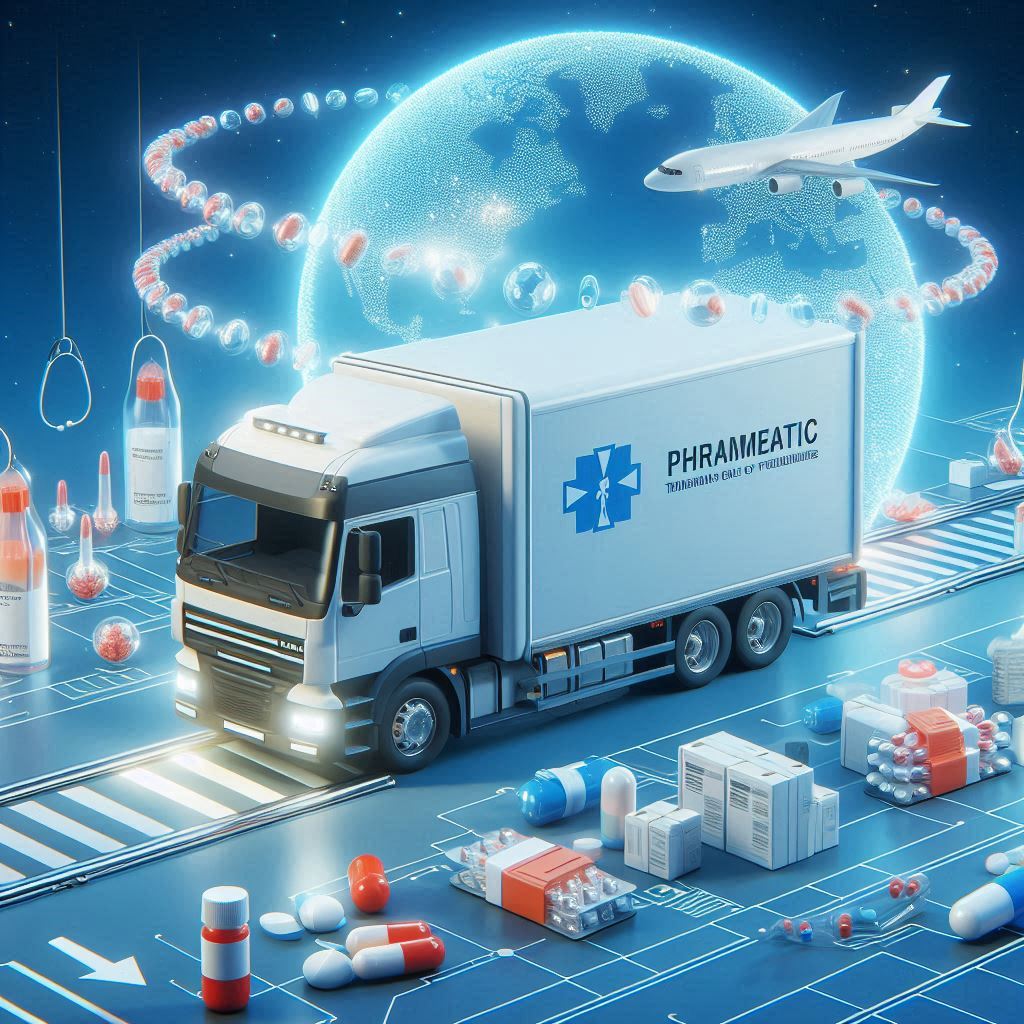Transportation of medicines - Cooperation with a pharmaceutical carrier
Due to the rapid growth of the pharmaceutical industry, the transportation of medicines requires special attention and a professional approach. Cooperation with a specialized carrier is crucial to ensure safety and regulatory compliance.
Check out our pharmaceutical transportation services
Pharmaceutical transportation - key requirements
Transportation of pharmaceuticals must comply with Good Distribution Practice (GDP) guidelines. A pharmaceutical carrier is required to comply with strict standards for transporting drugs and medicinal products.
Conditions for transporting drugs
Key aspects of pharmaceutical transportation:
- Constant temperature control
- Monitoring the conditions of carriage
- Protection against mechanical damage
- Documentation of each stage of transport
Cooperation with a carrier - what should be checked?
Fleet and equipment
Vehicles designed to transport medicines must have:
- Isothermal body
- Refrigeration unit
- Temperature monitoring systems
- GDP compliance certificates
See our specialized transportation

International transport of medicines
Transportation of medicines under controlled temperature on international routes requires:
- Knowledge of regulations of different countries
- Proper shipping documentation
- Planning routes including stops
- Constant monitoring of the shipment
Distribution of drugs and pharmaceuticals
Supply chain
Proper drug distribution includes:
- Collection from the manufacturer
- Transportation under controlled conditions
- Deliveries to pharmacies and wholesalers
- Documentation of each stage
Documentation in the transportation of medicines
Transporting medicines requires keeping detailed records:
- Temperature cards
- Waybills
- Quality certificates
- Acceptance Protocols
Explore our comprehensive solutions

Industry standards and norms
Pharmaceutical transportation must meet the highest standards:
- Compliance with pharmaceutical law
- Adherence to GDP rules
- ISO certification
- Regular quality audits
External sources:
- World Health Organization Guidelines
- European Medicines Agency
- International Air Transport Association
Cooperation in Poland
Domestic drug transportation requires:
- Knowledge of the local market
- Quick execution of orders
- Flexibility of supply
- Constant availability of the fleet
Ensuring the quality of services
The transportation company must provide:
- Constant temperature monitoring
- Cargo security
- Timeliness of deliveries
- Comprehensive logistics service
Pharmaceutical transportation is a specialized service that requires experience, appropriate equipment and knowledge of regulations. The right choice of carrier is crucial to the safety of drug products throughout the supply chain.
Specific requirements for pharmaceutical transportation
Temperature controlled
Temperature-controlled transportation of drugs requires:
- Transport conditions at 15-25°C for most drugs
- Special conditions for thermolabile preparations (2-8°C)
- Continuous temperature monitoring and recording
- Alarm systems in case of exceeding standards
Monitoring systems
Modern pharmaceutical transportation uses:
- GPS for vehicle tracking
- Temperature sensors with data transmission
- Systems for recording the opening of the cargo area
- Humidity monitoring
Certification and compliance with standards
GDP requirements
Good Distribution Practice requires:
- Validation of transport processes
- Qualification of personnel
- Documentation of procedures
- Regular audits
Certifications and authorizations
The pharmaceutical carrier must have:
- GDP Certificate
- Permits for transportation of medicinal products
- Quality management system certificates
- Permits for international transport
Logistical aspects
Route planning
Effective drug transport requires:
- Optimization of transport routes
- Include checkpoints
- Planning stops
- Alternative delivery scenarios
Fleet management
The transportation company must provide:
- Regular vehicle inspections
- Calibration of refrigeration systems
- Cleaning and disinfection
- Hardware backup
Documentation and quality control
Required documents
Pharmaceutical transportation requires guidance:
- Temperature control cards
- Sanitation protocols
- Shipping documents
- Monitoring reports
Emergency procedures
Procedures should be developed in case:
- Failure of the cooling system
- Road accidents
- Delivery delays
- Technical problems
International pharmaceutical transportation
Specifics of international transport
Transporting drugs across borders requires:
- Knowledge of regulations of different countries
- Appropriate permits and certificates
- Cooperation with local partners
- Additional documentation
International cooperation
The carrier must provide:
- Network of partners in different countries
- International quality standards
- Multilingual service
- Coordination of international deliveries
Innovations in pharmaceutical transportation
New technologies
The sector is using more and more:
- IoT for shipment monitoring
- Blockchain in documentation
- Artificial intelligence in route planning
- Process automation
Fleet development
Modern vehicles offer:
- Advanced cooling systems
- Automatic control of conditions
- Eco-friendly solutions
- Enhanced security
Choosing a pharmaceutical carrier
Selection criteria
When choosing a carrier, pay attention to:
- Industry experience
- Fleet status
- Quality management systems
- References and certificates
Long-term cooperation
Stable cooperation ensures:
- Process optimization
- Better understanding of needs
- Dedicated solutions
- Continuous improvement of services
Check out our transportation services
Summary
Pharmaceutical transportation requires specialized knowledge, experience and appropriate technical facilities. The right choice of a logistics partner is crucial to ensure the safety and quality of the drugs being transported.







